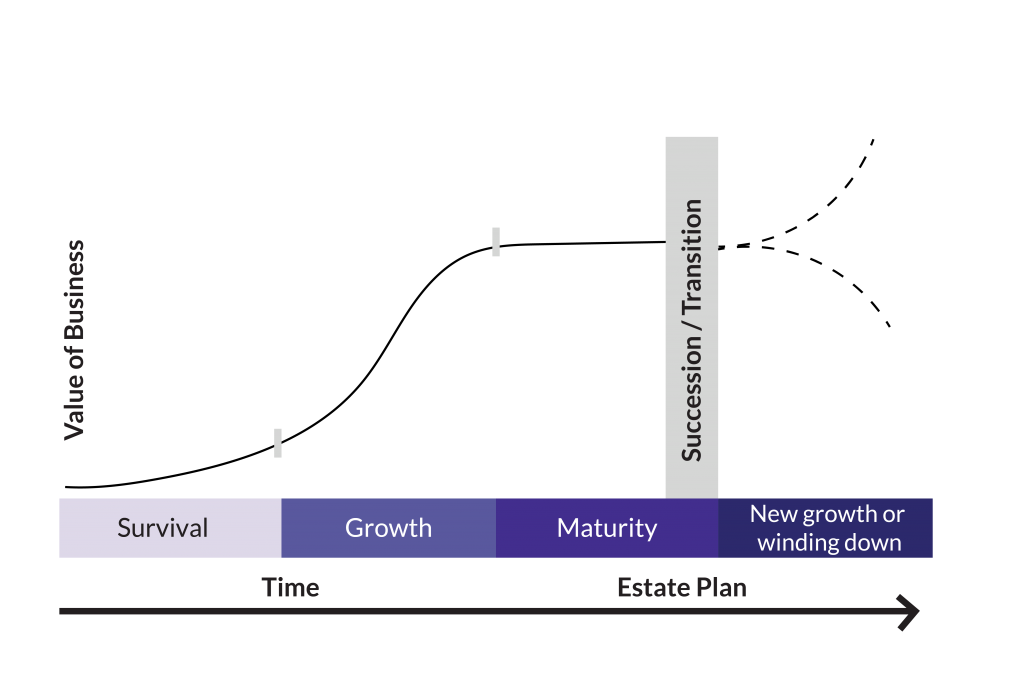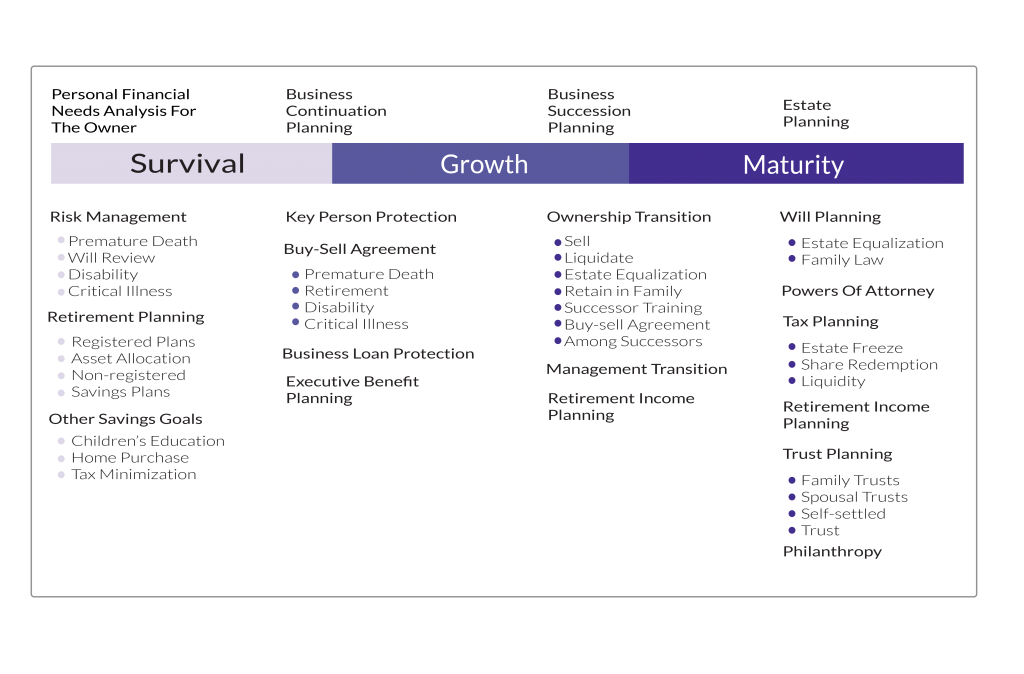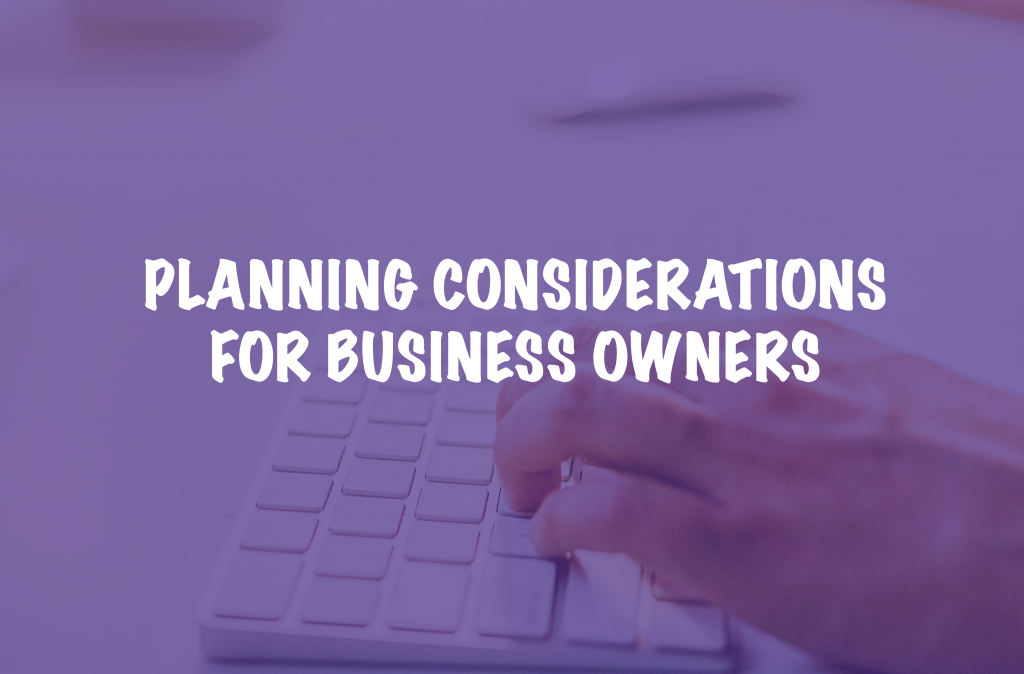Planning for business owners does not take place in a vacuum. It is part of a bigger process which leverages a number of financial protection strategies. While a business represents a source of current income for many business owners, the value of the business can also represent a primary source of income in retirement and the legacy the owner leaves behind.
Key Considerations:
Business Continuity: Protect the profitability and viability of your business. Business continuation strategies are critical not only for the immediate survival of the business, but to ensure that the business can generate the expected value for the owners when they exit the business.
Succession Planning: Ensure the future of your business. Business succession planning is the process of determining how you are going to transfer your business ownership and transition out of a business management role, while maximizing your personal financial security.

Estate Preservation:Preserve your assets. Estate preservation is the process of organizing a tax-efficient transfer of your assets to specific people or charities.
Estate Equalization:Provide fair and equal treatment. Whether it’s a child or family member it may be easiest to transfer your business to the person who is most likely to ensure its success and to give your other beneficiaries assets of approximately equal value that are unrelated to the business.
Charitable Giving:Giving back to and connecting with your community. Charitable giving can be done through all stages of your business but many businesses owners want to leave a legacy once they are gone.







